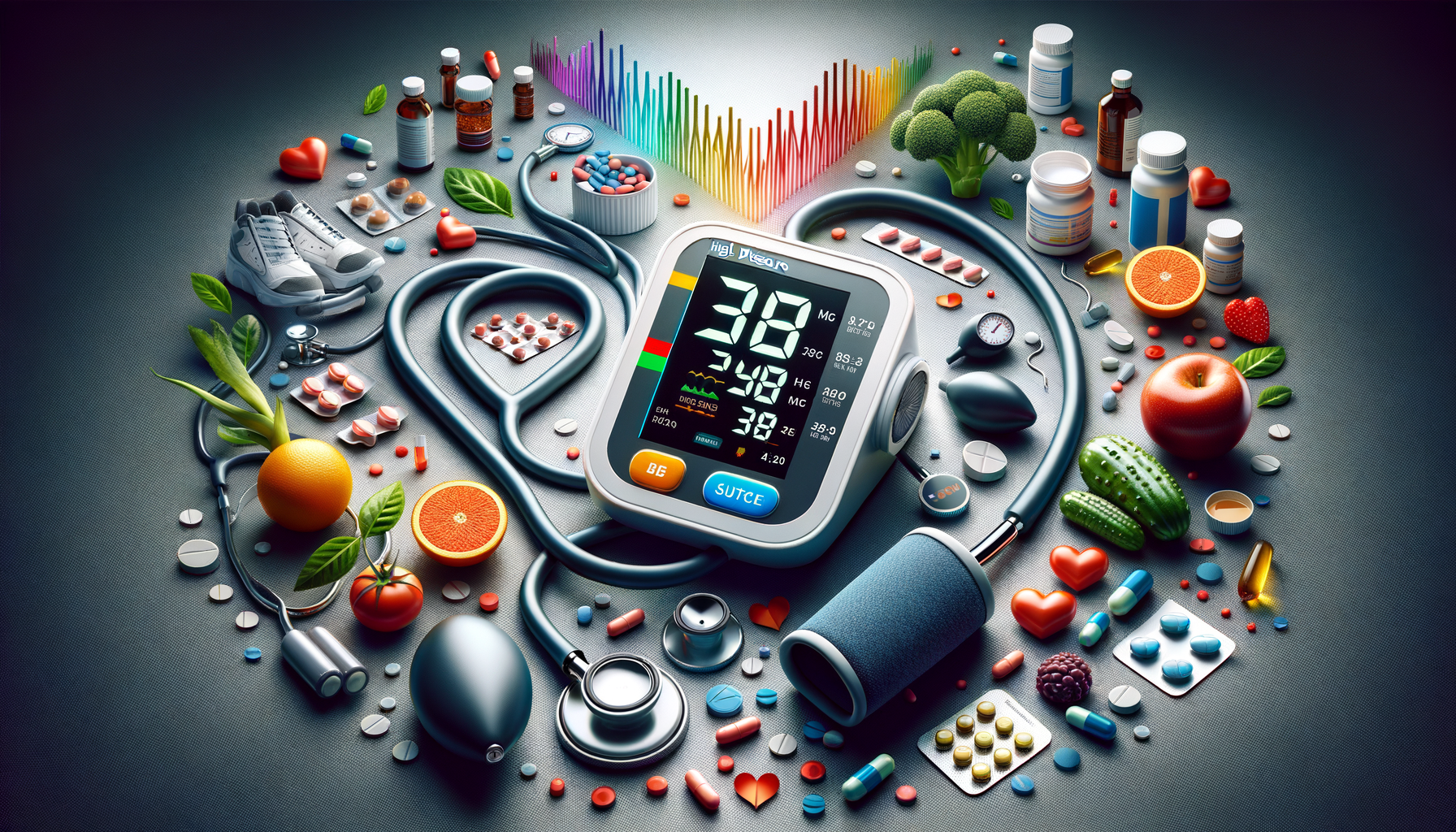Introduction to High Blood Pressure
High blood pressure, also known as hypertension, is a common medical condition that affects millions worldwide. It occurs when the force of the blood against the artery walls is too high, which can eventually lead to health problems such as heart disease. Understanding the treatment of high blood pressure is crucial for maintaining a healthy lifestyle and preventing complications.
Hypertension is often called the “silent killer” because it typically has no symptoms until significant damage has occurred. This makes it essential to have regular check-ups to monitor blood pressure levels. Early detection and management can significantly reduce the risk of severe health issues.
Medications for High Blood Pressure
Medications play a vital role in managing high blood pressure. There are several classes of medications that doctors may prescribe, each working differently to lower blood pressure. Common types include:
- Diuretics: Help the kidneys remove excess salt and water from the body.
- Beta-blockers: Reduce the heart rate and the heart’s output of blood.
- ACE inhibitors: Help relax blood vessels by blocking the formation of a natural chemical that narrows blood vessels.
- Calcium channel blockers: Prevent calcium from entering heart and blood vessel muscle cells, leading to relaxed blood vessels.
Choosing the right medication often depends on individual health conditions and the presence of other diseases. It’s essential to follow the healthcare provider’s instructions and report any side effects experienced.
Lifestyle Changes to Manage Hypertension
In addition to medication, lifestyle changes are a cornerstone of high blood pressure treatment. A healthy lifestyle can enhance the effectiveness of medication and sometimes even reduce the need for medication. Key lifestyle changes include:
- Diet: Adopting a heart-healthy diet, such as the DASH diet, which emphasizes fruits, vegetables, whole grains, and lean proteins.
- Exercise: Regular physical activity, such as walking, jogging, or cycling, can help lower blood pressure.
- Weight Management: Maintaining a healthy weight is crucial as excess weight can increase blood pressure.
- Stress Reduction: Techniques like meditation, yoga, and deep breathing can help manage stress levels.
These lifestyle modifications not only help in managing blood pressure but also contribute to overall well-being.
Monitoring and Regular Check-ups
Regular monitoring of blood pressure is essential for effective management of hypertension. Home blood pressure monitors can be a useful tool for keeping track of blood pressure levels. It is important to follow the manufacturer’s instructions for accurate readings.
Regular check-ups with a healthcare provider are also crucial. These visits allow for adjustments in treatment plans and provide an opportunity to discuss any concerns. Keeping a record of blood pressure readings can help the healthcare provider make informed decisions about treatment.
Conclusion: Taking Control of Your Health
Managing high blood pressure is a lifelong commitment that involves a combination of medication, lifestyle changes, and regular monitoring. By taking proactive steps and working closely with healthcare providers, individuals can effectively manage their blood pressure and reduce the risk of complications.
Understanding the importance of treatment and making informed decisions can empower individuals to take control of their health, leading to a better quality of life.




Leave a Reply